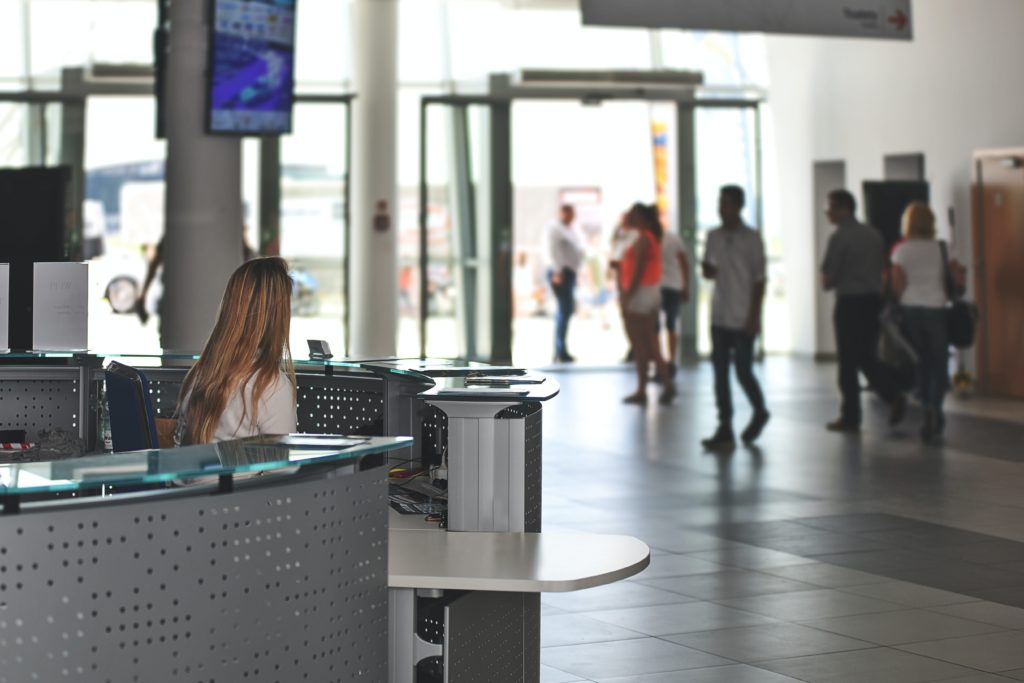Racial profiling is rife in security, but it could cost your job
As a security guard is fired for mistaking Vogue editor Edward Enninful for a delivery person, we consider why assumptions can be toxic

Last month, a security guard was fired, all because he made a split-second assumption. He was a temp covering for the usual guard, and the man he made the incorrect assumption about just so happened to be one of the most powerful editors in the world.
The scene played out in Vogue House in central London, home to the magazine of the same name. In walks Edward Enninful, editor-in-chief at Vogue magazine and a man who has received an OBE for his services to fashion, on his way up to his office. Enninful also happens to be Black. Upon seeing him, the security guard instructed Enninful to use the loading bay, perhaps mistaking him for someone making a delivery.
In a social media post that has since been deleted, Enninful spoke of the hurt of being “racially profiled”. He continued: “Just because our timelines and weekends are returning to normal, we cannot let the world return to how it was.”

Enninful reported the incident to his employer, Condé Nast, which swiftly dismissed the security guard. The agency that employed him has also launched a separate enquiry into the guard’s conduct.
This type of racial profiling happens all the time in security. Roxanne Rajcoomar-Hadden, a jewellery designer who used to work in luxury stores on London’s Bond Street, experienced it first hand from the inside. “When I worked on Bond Street, so many Black people – including millionaires – were turned away from even entering the stores because of supposed security risks,” she says.
Making assumptions about people based purely on their appearance is often a security guard’s first response – the job is to be wary and sniff out potential threats. However, jumping to conclusions too quickly, and falling foul of racial profiling, can cause the loss of a sale for an employer, or – in the case of Vogue House – get a guard fired.
So, what can be done to reduce racial profiling in the security industry? “To date, research has yet to uncover a straightforward method that can lastingly mitigate implicit biases,” writes Jack Glaser in Greater Good Magazine. “This shouldn’t be entirely surprising. Implicit stereotypes are formed and reinforced by media representations that pair certain demographic characteristics – such as gender, race, or ethnicity – with specific roles in our society. Black criminals and female teachers, white male CEOs and Asian drycleaners. And some, including the black=criminal association, are more pervasive than others. Until we design a method for inoculating people from subsequent exposure to the misleading information in their environment, we won’t achieve lasting reductions of implicit biases.”

Unless you are able to selectively erase your memory, it seems you can’t stop your brain from making such stereotyped assumptions. What you can do is be aware of racial stereotyping. Keep it front and centre in your brain – why are you stopping that customer, or directing that person to the loading bay? Is it because they seem shifty or are holding a clipboard, or is it just because they are Black?
In the sales business, there is a saying that you should never assume anything about anyone – just because someone shows up in scruffy clothes doesn’t mean they don’t have money. This is a useful tool for security guards. Trust your gut, but back it up – ask questions. If that security guard at Vogue House had asked where Enninful was headed, rather than assuming he was making a delivery, it could have been a very different story – or, indeed, no story at all.
In our Security and Loss Prevention programme you will Learn techniques and skills, to get your SIA badge and start a rewarding career. The course has been designed to incorporate the evolving needs and demands of a variety of employers, employment conditions and recognises the diversity of communities. Register your interest here: https://free2learn.org.uk/security-and-loss-prevention-course/





